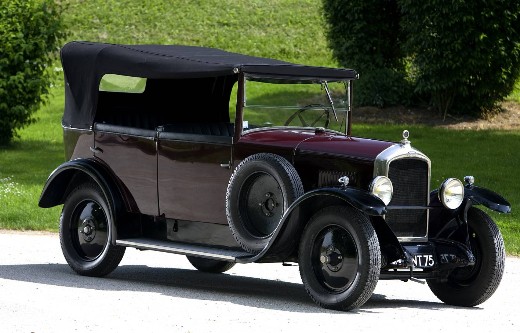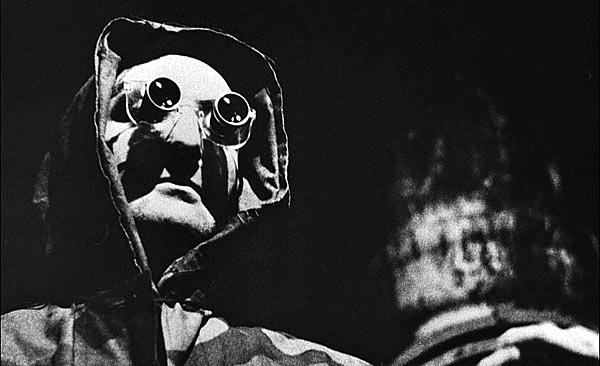Film Commentary: Time Traveling With and Without Woody Allen
Time travel in movies, whether treated as farce or serious sci-fi mind-bending, sometimes excites us by challenging the idea that we’re trapped in a linear chronology from which we cannot escape, racking up regrets, mistakes, and old-age as we go.
By Taylor Adams
“He ran toward her. And when he recognized the man who’d trailed him from the camp, he realized there was no escape out of time, and that that moment he’d been granted to see as a child, and that had obsessed him forever after… was the moment of his own death.” – La jetée (1962)
Time travel may involve near-incomprehensible math and probably-insurmountable scientific problems in real life, but that hasn’t stopped it from being a common theme in pop culture. Not only do our fictional characters jump eras as if playing hopscotch when it suits the needs of a writer, but the general public has a fairly strong understanding concerning the supposed “rules” of the game (better make sure your parents meet, Marty McFly!).
But as we know, there are two types of film cliches: those Woody Allen has cleverly structured a movie around already and those he’ll get to eventually (long may he extrude one film a year). When the clock rings 12 in his latest, Midnight in Paris, time’s up for time travel.
Paris follows the fantastical adventures of a Hollywood-hack-type screenwriter named Gil (Owen Wilson) on vacation in Paris who, disillusioned with his materialistic fiance Inez, her intolerable parents, and generally the entire 21st century, is magically transported (by an old Peugeot no less) back in time each midnight.
He bumbles entertainingly through the Paris that Hemingway once described as a “movable feast” (a fact that the film reminds us of repeatedly). We meet Ernest himself, here a hilarious caricature who waxes about wartime courage and big-game hunts and is joined by the Fitzgeralds, Picasso, an all-star list of surrealists (Adrien Brody excels as Dali), Cole Porter, and many others.
Gil learns much from his new friends, even finds a love interest in a fictional art-groupie named Adriana (exquisite, dreamy Marion Cotillard), who herself yearns for the romance of an earlier era (the so-called Belle Epoch). But by the end, Allen’s script endeavors to teach us that nostalgia for the distant past is ridiculous and probably impractical. Gil is going to have to learn to make do in his own era, because some people will always pine for an idealized past they never knew.
Someday, after all, writers will look out the windows of their spacecrafts with glassy eyes, knowing they were born too late and should have been around for the founding of Facebook and the reign of Lady Gaga, dodging hordes of Bieber-obsessed youngsters as they tapped out the great American novel of the twenty-first century on a first-generation iPad.
Of course, this all belies the fact that the film creates its own paradox. Midnight in Paris asks us to reject the very premise that makes it attractive: the fantasy of traveling back to a romantic time period (or two) and meeting the personalities that made it legendary. Of rubbing elbows with your forebears and seeing how you’d stack up against them. As fantasies go, it’s a strong one. And the director is good at creating it—he’s had practice.
Allen’s most famous films, Annie Hall and Manhattan, have been masterful, bittersweet, and often hilarious looks at the absurdities and pitfalls of modern romance. This makes it easy to forget he’s a director who, over a career of 41 films, has taken on a list of genres and settings rivaled by few.
This has allowed his trademark dithering personality (played either by himself or, more recently, a stand-in) to neurotically stumble in various guises through czarist Russia and Napoleon’s wars (Love and Death), the ‘40s (The Curse of the Jade Scorpion), the turn of the 20th century (A Midsummer Night’s Sex Comedy), a dystopian future (Sleeper), and others. He’s already played with imagining a character next to historical bold-facers in the faux-doc Zelig.
Such movies, though not explicitly about time travel, are very much about their settings and the situational comedy they enable (ie: Allen’s sniffling character engaging in a nobleman’s duel in Love and Death). In this way, they’re as much about the ideas of time travel as Back to the Future, sans DeLorean.
Time travel in movies, whether a farce or serious sci-fi, sometimes excites us by challenging the idea that we’re trapped in a linear chronology from which we cannot escape, racking up regrets, mistakes, and old-age as we go. Maybe we master time to absolve ourselves of guilt (Donnie Darko), to slow down the frenetic pace of life (Adam Sandler in Click), or to save the world (Terminator, hundreds of episodes of Doctor Who).
But then, there are the small things. So much of history is lost. We know about the big events, the big personalities, but we can only guess about the fascinating details or hang onto second-hand scraps from historical record (thus the popularity of the History Channel).
Therefore, it falls to Woody Allen to vividly show us how a drunken Hemingway would act at a party or what sort of dinner-table conversation would spring up between Dali, Bunuel, and Man Ray. Transplanting his character to a different era, here and in his other period films (for the character is never appropriate to the period), Allen allows us to observe through identification the small, funny situations that result from an imagined clash of past and present.
These are romantic visions, and Midnight in Paris, from the title to its hopeful conclusion, seems like an uncharacteristically romantic film for its director. After all, he ends the similarly-themed fantastic set-up of The Purple Rose of Cairo (about what could happen if the movies and real life could meet) in relative despair. But despite this, the film does a rather complete, if subtle, job of denying the fantasies that make it possible.
I opened these thoughts with the closing lines of Chris Marker’s experimental film La jetée. It wasn’t the first cinematic representation of time travel, but its innovative style—the film is comprised almost completely of still images—collapses cinematic time into a fragmented, visual slide show that mirrors the strangeness of the narrative.
A prisoner of war following an apocalyptic World War III is forced to undergo experiments in which his consciousness is beamed into the pre-war time period (a process that appears much more painful than Gil’s ride in a Peuguot). His captors want to use these trips to find resources in the past to fix their shattered world (this concept later lent a foundation to Terry Gilliam’s Twelve Monkeys).
At first, the films seem as if they couldn’t be more different. La jetée is unwatchable by Hollywood standards, and Midnight in Paris plays along with them enough to be Allen’s most popular effort in years.
But there are telling similarities. Like Gil, La jetée’s unknown soldier meets the woman of his dreams in the past, eventually traverses three different eras that are found to be irreconcilable with one another, and discovers, in the end, that escape from fate and an undesirable present is impossible.
It’s a theme that brings to mind the 2004 independent sci-fi film Primer, in which two friends accidentally discover time travel and, through repeat trips, create a web of schizophrenic narrative time lines that is quite hard for a viewer to follow and further highlights the implications of being untethered from time.
“Schizophrenic” may be an appropriate term. Recent research has suggested that such mental disorders may actually be tied to how a person experiences time (see Harmony Korine’s Julien Donkey Boy for an often unintelligible, cinematic representation of this idea). Time is a one-way street for a reason, or at least our brains are built to experience it that way. Without indelible, unstoppable, merciless time, “reality” ceases to exist. Like death and taxes, it defines us.
So while La jetée and Midnight in Paris assert this fact in different ways and with different stakes, the articulated truth remains that we cannot escape the normal procession of time, shouldn’t want to do so, and must remain locked in linearity forever, with only nostalgia to comfort us. Anything else is forever relegated to the fantasies of the screen and of the page. Too bad.
And I’d thought for a minute there that Woody Allen had finally gone soft . . .




I saw “Midnight in Paris” last weekend and enjoyed it very much. The actors selected for the various roles seemed just right, with Kathy Bates and Adrian Brody standouts. Allen managed, as only he can, to make the unlikeable really unlikable. The time travel was cleverly accomplished. Much of the enjoyment of the film and its humor comes from being familiar with the literary and other figures portrayed.
Excellent analysis of the themes and play of time travel in “Midnight”. Just saw it yesterday…I must go see it again (as a hopeful attempt to recapture the first-time viewing experience?)!